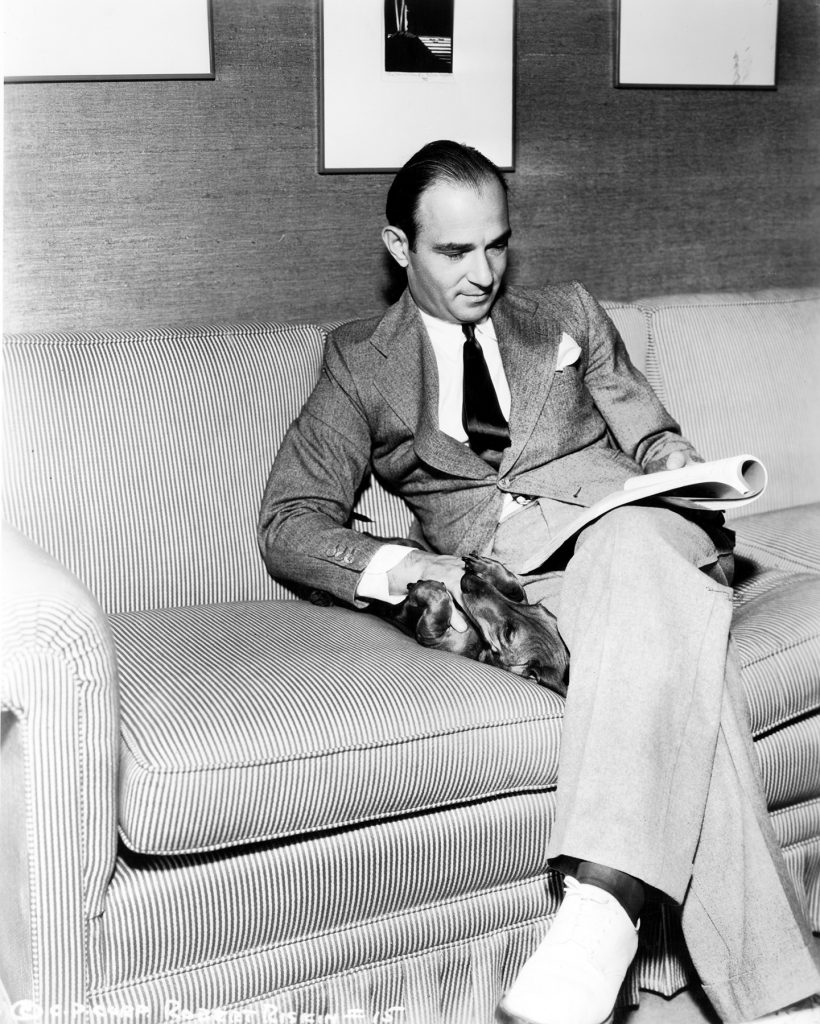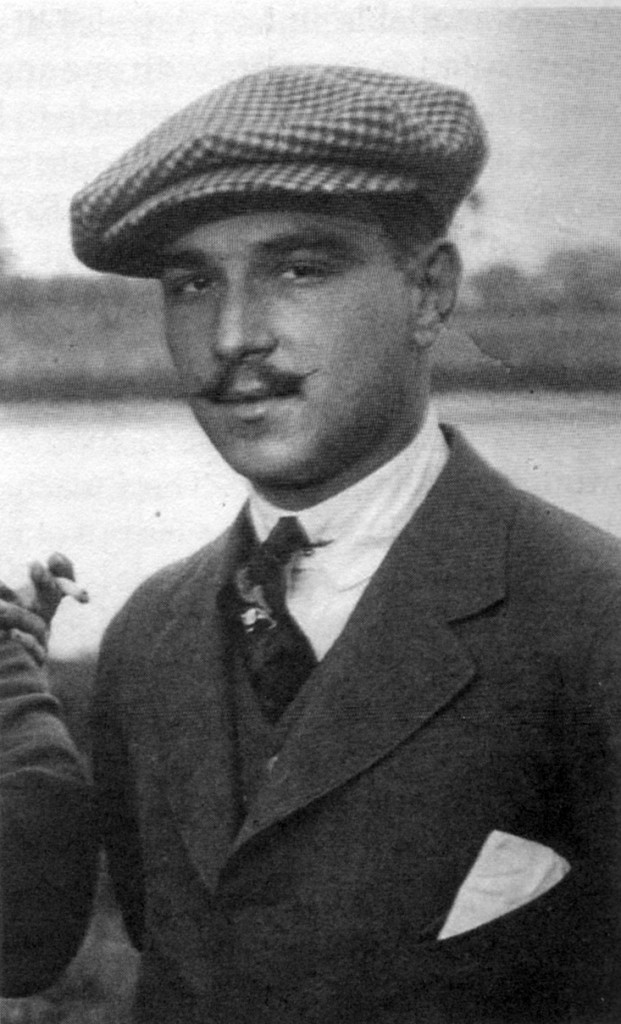Robert Riskin Jr. was an American screenwriter and director who is best known for his work on the films It Happened One Night (1934) and Mr. Deeds Goes to Town (1936).
Riskin was born in New York City in 1914. He began his career as a journalist, but soon turned to screenwriting. In 1934, he co-wrote the screenplay for It Happened One Night, which won the Academy Award for Best Picture. Riskin also co-wrote the screenplays for Mr. Deeds Goes to Town (1936), Lost Horizon (1937), and You Can't Take It with You (1938).
In addition to his work as a screenwriter, Riskin also directed several films, including Meet John Doe (1941) and The Thin Man Goes Home (1945). He was a talented filmmaker who made significant contributions to American cinema.
Robert Riskin Jr.
Robert Riskin Jr. was an American screenwriter and director. He is best known for his work on the films It Happened One Night (1934) and Mr. Deeds Goes to Town (1936). Riskin was a talented filmmaker who made significant contributions to American cinema.
- Academy Award winner: Riskin won the Academy Award for Best Original Screenplay for It Happened One Night (1934).
- Prolific screenwriter: Riskin wrote over 50 screenplays during his career.
- Collaborator with Frank Capra: Riskin frequently collaborated with director Frank Capra on films such as It Happened One Night and Mr. Deeds Goes to Town.
- Political themes: Riskin's films often explored political themes, such as the importance of social justice and the dangers of fascism.
- Literary adaptations: Riskin adapted several works of literature for the screen, including Lost Horizon (1937) and You Can't Take It with You (1938).
- Directorial debut: Riskin made his directorial debut with the film Meet John Doe (1941).
- Later career: Riskin continued to write and direct films throughout the 1940s and 1950s.
- Legacy: Riskin's films are still enjoyed by audiences today and he is considered one of the most important screenwriters in American cinema history.
Personal Details and Bio Data
| Name | Robert Riskin Jr. |
|---|---|
| Birth Date | March 30, 1914 |
| Birth Place | New York City, New York, U.S. |
| Death Date | December 28, 1955 |
| Death Place | Beverly Hills, California, U.S. |
| Occupation | Screenwriter, director |
| Nationality | American |
Academy Award winner
Robert Riskin Jr.'s Academy Award win for It Happened One Night was a significant achievement in his career. The award recognized his as a screenwriter and helped to establish him as one of the leading writers in Hollywood. The award also brought attention to It Happened One Night, which went on to win the Academy Award for Best Picture. Riskin's win was a major moment in his career and helped to solidify his reputation as a talented and successful screenwriter.
The Academy Award win also had a significant impact on Riskin's personal life. The award gave him a sense of validation and accomplishment, and it helped to boost his confidence. The award also helped to open doors for Riskin, leading to new opportunities and projects. Riskin went on to write and direct several more successful films, including Mr. Deeds Goes to Town (1936) and Lost Horizon (1937).
Riskin's Academy Award win is a reminder of the power of hard work and dedication. Riskin was a talented writer who worked hard to achieve his goals. His win is an inspiration to all who aspire to achieve great things.
Prolific screenwriter
Robert Riskin Jr. was a prolific screenwriter, writing over 50 screenplays during his career. This remarkable output is a testament to his dedication to his craft and his passion for storytelling. Riskin's prolificacy allowed him to make a significant contribution to American cinema, and his work continues to be enjoyed by audiences today.
One of the key factors that contributed to Riskin's prolificacy was his ability to write quickly and efficiently. He was known for being able to produce a polished screenplay in a matter of weeks, which allowed him to take on multiple projects simultaneously. Additionally, Riskin was a master of structure and dialogue, which enabled him to create compelling and engaging stories.
Riskin's prolificacy also allowed him to collaborate with some of the most talented directors in Hollywood, including Frank Capra, George Stevens, and Alfred Hitchcock. These collaborations resulted in some of the most iconic films of the 1930s and 1940s, including It Happened One Night, Mr. Deeds Goes to Town, and Lost Horizon.
Robert Riskin Jr.'s prolificacy as a screenwriter is a significant part of his legacy. His ability to write quickly and efficiently, combined with his mastery of structure and dialogue, allowed him to make a major contribution to American cinema. His work continues to be enjoyed by audiences today, and his prolificacy is an inspiration to aspiring screenwriters.
Collaborator with Frank Capra
Robert Riskin Jr.'s collaboration with Frank Capra was one of the most successful in Hollywood history. The two men worked together on 10 films, including some of the most iconic films of the 1930s and 1940s.
- Shared Vision: Riskin and Capra shared a common vision for filmmaking, which emphasized strong characters, compelling stories, and social commentary. This shared vision allowed them to create films that were both entertaining and thought-provoking.
- Mutual Respect: Riskin and Capra had a great deal of respect for each other's talents. Riskin admired Capra's directorial skills, while Capra admired Riskin's writing ability. This mutual respect allowed them to work together effectively and to create some of the best films of their careers.
- Creative Synergy: Riskin and Capra had a creative synergy that allowed them to bring out the best in each other. When they worked together, they were able to create films that were greater than the sum of their parts.
- Critical and Commercial Success: Riskin and Capra's films were both critically and commercially successful. Their films won numerous Academy Awards and were some of the most popular films of their time.
The collaboration between Robert Riskin Jr. and Frank Capra was one of the most successful in Hollywood history. The two men created some of the most iconic films of the 1930s and 1940s, and their films continue to be enjoyed by audiences today.
Political themes
Robert Riskin Jr. was a screenwriter and director who frequently explored political themes in his work. His films often addressed issues of social justice and the dangers of fascism, reflecting his own progressive political beliefs.
- Social Justice: Riskin's films often highlighted the plight of the working class and the poor. In Mr. Deeds Goes to Town (1936), the title character, a wealthy man, uses his fortune to help the less fortunate. In Meet John Doe (1941), Riskin tells the story of a homeless man who is hired by a newspaper tycoon to impersonate a populist leader.
- Dangers of Fascism: Riskin was also outspoken in his opposition to fascism. In his film It Happened One Night (1934), he satirizes the rise of fascism in Europe. In Lost Horizon (1937), he tells the story of a group of people who escape from a fascist regime and find refuge in a hidden valley.
Riskin's films were both entertaining and thought-provoking, and they helped to raise awareness of important social and political issues. His work continues to be relevant today, and his films are still enjoyed by audiences around the world.
Literary adaptations
Robert Riskin Jr.'s literary adaptations played a significant role in his career and contributed to his legacy as a talented screenwriter. His ability to adapt complex literary works into successful films demonstrated his skill in storytelling and his understanding of the cinematic medium.
Riskin's adaptations were not merely faithful translations of the original works. He skillfully adapted the stories to fit the demands of the screen, while still capturing their essence and themes. For example, in his adaptation of Lost Horizon, Riskin streamlined the plot and characters to make it more accessible to a wider audience, while still preserving the novel's philosophical and spiritual themes.
Riskin's literary adaptations were also critical and commercial successes. Lost Horizon was nominated for seven Academy Awards, and You Can't Take It with You won two Academy Awards, including Best Picture. These successes not only solidified Riskin's reputation as a screenwriter but also helped to raise the profile of literary adaptations in Hollywood.
In conclusion, Robert Riskin Jr.'s literary adaptations were an important part of his career and contributed to his legacy as a talented screenwriter. His ability to adapt complex literary works into successful films demonstrated his skill in storytelling and his understanding of the cinematic medium.
Directorial debut
Robert Riskin Jr.'s directorial debut marked a significant milestone in his career, showcasing his versatility and expanding his role beyond screenwriting. Meet John Doe, released in 1941, presented a unique opportunity for Riskin to exercise his creative vision and establish himself as a director in his own right.
- Artistic Control: As a director, Riskin gained complete artistic control over the filmmaking process, allowing him to translate his vision for the story onto the screen. He could orchestrate every aspect of production, from shot composition to actor performances, ensuring that his creative intent was fully realized.
- Storytelling Style: Riskin's directorial approach in Meet John Doe exemplified his signature storytelling style. The film's blend of humor, social commentary, and emotional depth showcased his ability to connect with audiences on multiple levels. This storytelling style would become a hallmark of his subsequent directorial efforts.
- Collaboration: Despite his directorial debut, Riskin continued to collaborate closely with other talented filmmakers. Most notably, he partnered with producer Frank Capra, who had previously directed Riskin's screenwriting work in classics like It Happened One Night. This collaboration fostered a creative synergy that pushed the boundaries of cinematic storytelling.
- Critical Acclaim:Meet John Doe garnered critical acclaim upon its release, solidifying Riskin's reputation as a multi-faceted filmmaker. The film's success not only showcased his directorial skills but also reinforced his ability to captivate audiences with thought-provoking and emotionally resonant stories.
Robert Riskin Jr.'s directorial debut in Meet John Doe was a testament to his creative ambition and artistic evolution. It marked a new chapter in his career, allowing him to expand his horizons and contribute to the cinematic landscape in a more comprehensive way.
Later career
Robert Riskin Jr.'s later career was marked by continued productivity and success in both screenwriting and directing. Despite the challenges posed by the changing Hollywood landscape, Riskin remained a sought-after talent, collaborating with major studios and filmmakers to create a diverse range of films.
- Screenwriting and Directing: Throughout the 1940s and 1950s, Riskin continued to write and direct films, showcasing his versatility and dedication to storytelling. He directed films such as The Thin Man Goes Home (1945) and Magic Town (1947), while also contributing screenplays to films like The Bachelor and the Bobby-Soxer (1947) and The Paleface (1948).
- Collaboration and Adaptation: Riskin's later career was characterized by his ability to collaborate with other talented filmmakers and adapt literary works for the screen. He collaborated with directors such as George Stevens and Billy Wilder, and adapted works by authors such as John Steinbeck and Damon Runyon.
- Critical and Commercial Success: Riskin's films continued to receive critical and commercial success during this period. The Thin Man Goes Home was a box-office hit, and The Bachelor and the Bobby-Soxer received an Academy Award nomination for Best Original Screenplay. These successes solidified Riskin's reputation as a skilled and respected filmmaker.
Robert Riskin Jr.'s later career was a testament to his enduring talent and dedication to his craft. He continued to write and direct films that entertained and engaged audiences, leaving a lasting legacy in the world of cinema.
Legacy
Robert Riskin Jr.'s legacy as a screenwriter and director is firmly cemented in the annals of American cinema. His contributions to the art form have left an enduring mark, ensuring that his work continues to be appreciated and enjoyed by audiences to this day.
- Exceptional Storytelling: Riskin possessed a masterful ability to craft compelling stories that resonated with audiences. His screenplays were known for their wit, emotional depth, and social commentary. Films like It Happened One Night and Mr. Deeds Goes to Town showcased his
- Collaboration and Innovation: Riskin's fruitful collaborations with directors like Frank Capra allowed him to bring his stories to life in a dynamic and innovative manner. Together, they pushed the boundaries of filmmaking and set new standards for cinematic excellence.
- Cultural Impact: Riskin's films had a profound impact on American culture. His exploration of social issues and his celebration of the common man resonated deeply with audiences during the Great Depression and beyond. His work continues to inspire and entertain viewers of all generations.
- Enduring Popularity: Decades after their initial release, Riskin's films remain popular and widely screened. His ability to craft timeless stories with universal appeal ensures that his legacy will continue to endure for years to come.
In conclusion, Robert Riskin Jr.'s legacy as a screenwriter and director is one of exceptional storytelling, collaboration, cultural impact, and enduring popularity. His work has left an indelible mark on American cinema, and his films continue to entertain and inspire audiences around the globe.
FAQs on Robert Riskin Jr.
This section provides answers to frequently asked questions about Robert Riskin Jr., an acclaimed screenwriter and director.
Question 1: What are some of Robert Riskin Jr.'s most notable achievements?
Answer: Riskin Jr. won an Academy Award for Best Original Screenplay for It Happened One Night (1934) and collaborated with director Frank Capra on several iconic films, including Mr. Deeds Goes to Town (1936) and Lost Horizon (1937).
Question 2: What themes are often explored in Riskin Jr.'s films?
Answer: Social justice and the dangers of fascism are recurring themes in Riskin Jr.'s work. His films often highlight the plight of the working class and the importance of fighting against authoritarianism.
Question 3: How did Riskin Jr. contribute to American cinema?
Answer: Riskin Jr. played a significant role in shaping American cinema through his witty, emotionally resonant, and socially conscious screenplays. He helped establish the romantic comedy genre and contributed to the development of the screwball comedy.
Question 4: What is Riskin Jr.'s legacy in the film industry?
Answer: Riskin Jr. is remembered as one of the most influential screenwriters in American cinema history. His work continues to be studied and admired by filmmakers and screenwriters today.
Question 5: What are some of the challenges Riskin Jr. faced during his career?
Answer: Riskin Jr. faced challenges such as censorship and the changing landscape of the film industry. However, he.
Question 6: What can we learn from Robert Riskin Jr.'s work?
Answer: Riskin Jr.'s work teaches us the importance of storytelling, social consciousness, and the pursuit of excellence in filmmaking. His films continue to inspire and entertain audiences today.
Summary: Robert Riskin Jr. was a prolific and influential screenwriter and director whose work left a lasting impact on American cinema. His ability to craft compelling stories, explore important themes, and collaborate with talented filmmakers continues to inspire and entertain audiences.
Transition: To further delve into Robert Riskin Jr.'s life and career, explore the following sections of this article.
Robert Riskin Jr.'s Tips for Screenwriting
Robert Riskin Jr. was a renowned screenwriter and director known for his witty, socially conscious, and emotionally resonant screenplays. His work continues to inspire and entertain audiences today. Here are some of his valuable tips for aspiring screenwriters:
Tip 1: Focus on Character Development
Riskin believed that strong, well-developed characters are the foundation of any great screenplay. He advised writers to spend time creating relatable and believable characters that drive the story forward.
Tip 2: Write with Clarity and Simplicity
Riskin emphasized the importance of writing with clarity and simplicity. He believed that the audience should be able to easily understand and follow the story without being bogged down by complex language or convoluted plots.
Tip 3: Observe the World Around You
Riskin drew inspiration from real life when writing his screenplays. He encouraged writers to observe the world around them, paying attention to the people, events, and social issues that could provide valuable material for their stories.
Tip 4: Don't Be Afraid to Collaborate
Riskin frequently collaborated with other talented filmmakers, including directors and producers. He believed that collaboration could bring fresh perspectives and ideas to the creative process.
Tip 5: Revise and Refine Your Work
Riskin stressed the importance of revising and refining screenplays. He advised writers to take their time, get feedback from others, and.
By following these tips, aspiring screenwriters can learn from the wisdom and experience of one of the greatest screenwriters in American cinema history. Robert Riskin Jr.'s legacy continues to inspire and guide new generations of storytellers.
To further explore Robert Riskin Jr.'s life and career, continue reading the comprehensive biography provided in this article.
Robert Riskin Jr.
Robert Riskin Jr.'s remarkable contributions to American cinema continue to inspire and entertain audiences. His ability to craft compelling stories, explore important themes, and collaborate with talented filmmakers has left an indelible mark on the industry. Through his screenplays, Riskin Jr. brought to life characters that resonated with audiences and explored social issues with wit and compassion.
As we reflect on Robert Riskin Jr.'s legacy, let us remember the importance of strong storytelling, character development, and collaboration in the art of filmmaking. His work serves as a reminder that cinema has the power to entertain, educate, and inspire us all. May his passion for storytelling continue to influence and guide future generations of filmmakers.
Uncover The Enduring Bonds: A Deep Dive Into Jason Schwartzman's Relationships
Unveiling The Secrets Of Tony Curtis's Will
Unveiling The Sheen Legacy: Discoveries About Martin Sheen's Sons



ncG1vNJzZmislayurH2NmqSsa16Ztqi105qjqJuVlru0vMCcnKxmk6S6cL7Om5yrrF2ntrS3yKdko6pencGuuA%3D%3D